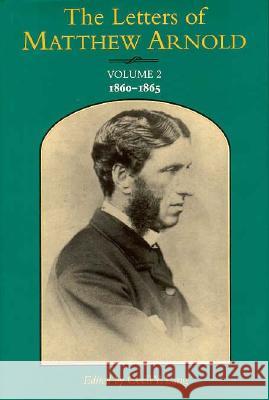The Letters of Matthew Arnold: 1860-1865 Volume 2 » książka
The Letters of Matthew Arnold: 1860-1865 Volume 2
ISBN-13: 9780813917061 / Angielski / Twarda / 1997 / 505 str.
The Letters of Matthew Arnold: 1860-1865 Volume 2
ISBN-13: 9780813917061 / Angielski / Twarda / 1997 / 505 str.
(netto: 366,24 VAT: 5%)
Najniższa cena z 30 dni: 383,76
ok. 22 dni roboczych.
Darmowa dostawa!
The University Press of Virginia edition of The Letters of Matthew Arnold, edited by Cecil Y. Lang, represents the most comprehensive and assiduously annotated collection of Arnold's correspondence available. When complete in six volumes, this edition will include close to four thousand letters, nearly five times the number in G.W.E. Russell's two-volume compilation of 1895. The letters, at once meaty and delightful, appear with a consecutiveness rare in such editions, and they contain a great deal of new information, both personal (sometimes intimate) and professional. Two new diaries are included, a handful of letters to Matthew Arnold, and many of his own that will appear in their entirety here for the first time. Renowned as a poet and critic, Arnold will be celebrated now as a letter writer. Nowhere else is Arnold's appreciation of life and literature so extravagantly evident as in his correspondence. His letters amplify the dark vision of his own verse, as well as the moral background of his criticism. As Cecil Lang writes, the letters -may well be the finest portrait of an age and of a person, representing the main movements of mind and of events of nearly half a century and at the same time revealing the intimate life of the participant-observer, in any collection of letters in the nineteenth century, possibly in existence.-Volume 2 covers the years of Arnold's emergence as a critic. During this period, he consolidated his reputation with Essays in Criticism, notably the influential article, -The Function of Criticism at the Present Time.- In 1865, in Europe on an official school study, he records his impressions with his usual keen observations of nature within and nature without. His letters to friends (old and new, at home and abroad), to politicians and theologians continue to display an unhurried, unfailing intellect. Writing to his mother and other members of his family, he exhibits a warm, witty, and always observant devotion to his wife, Flu, and young son, Tom, who often accompany him on his travels in England.











